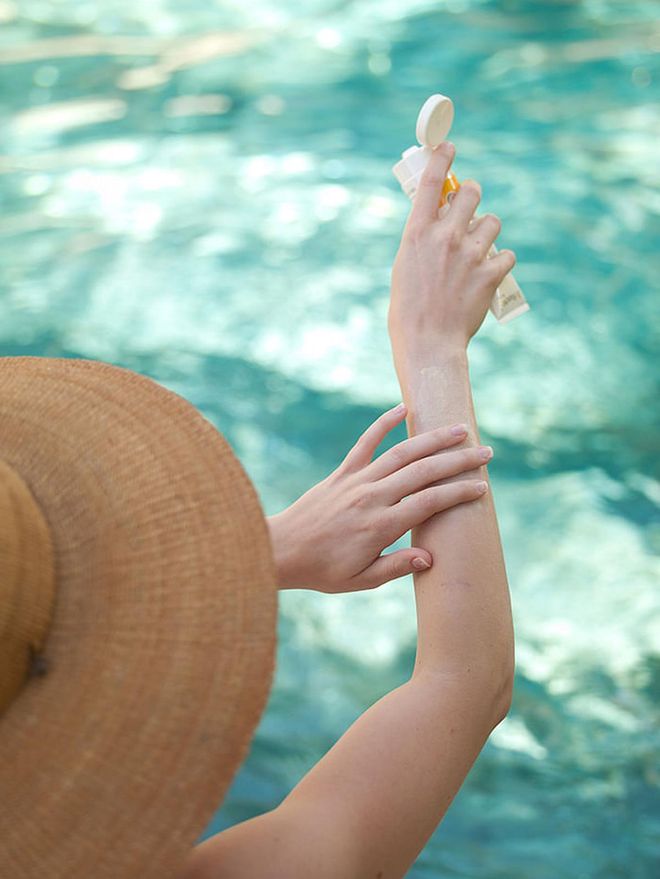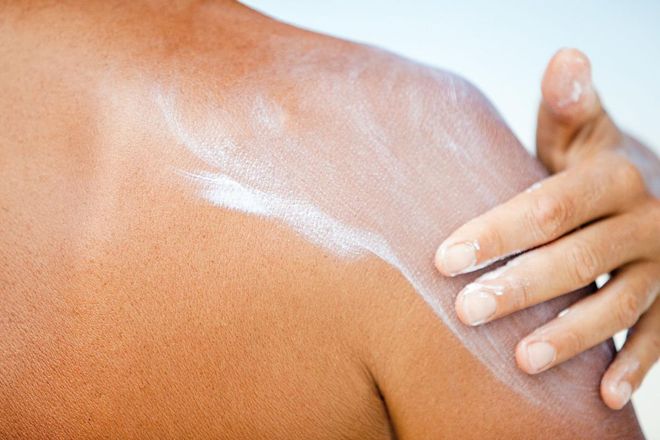Here's Why You Should Be Using Reef-Safe Sunscreen
Let's do our part to save and protect the oceans


Photo: Getty
Here's Why You Should Be Using Reef-safe Sunscreen
Every beauty editor and enthusiast you speak with will probably tell you that using sunscreen religiously is one of the best things you can do to improve your complexion and combat photoaging—and they’re right. That said, the seemingly harmless, often white and milky liquid that you apply on your face for sun protection isn’t actually all that good for the environment—especially the ocean.
Sunscreens containing the ingredients oxybenzone, octinoxate and octocrylene are believed by marine scientists to contribute to coral bleaching, a phenomenon that causes coral polyps to expel algae that live inside their tissues. Which they have an endosymbiotic relationship with, and get 90 percent of their energy from. Wearing sunblock while surfing or going for a swim isn’t the only way these chemicals make their way into the sea. They also enter marine ecosystems via sewage treatment plant outflows.
Related article: A To Z Of Singapore Beauty Brands

Photo: Getty
Here's Why You Should Be Using Reef-safe Sunscreen
So does that mean that we should stop using sunscreens? Not quite. Just avoid chemical sunscreens—generally containing oxybenzone, octinoxate and octocrylene—and opt for physical sunscreens instead, which usually contains zinc oxide or titanium dioxide as the main UV-filtering ingredient. This isn’t to say that they’re completely reef-safe. When zinc oxide or titanium dioxide are un-coated and nano-sized (less than 35 nanometers in diameter), they threaten marine life. This is because the particles will be small enough to enter the cells of marine invertebrates and cause oxidative stress, often resulting in the death of the organism. Since the claim reef-safe isn’t heavily regulated in beauty products, do perform your own research on the brands’ sites to make sure it is what they say it is.
Related article: Chanel’s Sublimage Range Is Basically Couture For Your Skin

Photo: Getty
Here's Why You Should Be Using Reef-safe Sunscreen
As a form of good practice, opt for sunscreen products with a short list of ingredients; come in a lotion or cream formula (avoid aerosol versions as they tend to stick to the sand and get washed into the ocean); and wear sun-protective clothing as much as possible to reduce reliance on sunscreen. So swap out your sunscreens with some of our favourite non-toxic options below. Corals all over the world will thank you.
Related article: 11 Black-Owned Beauty Brands We Love